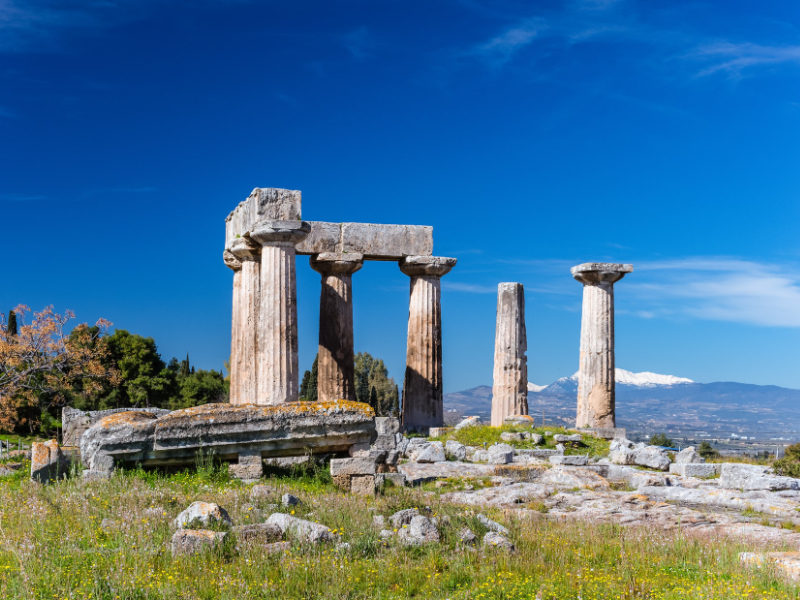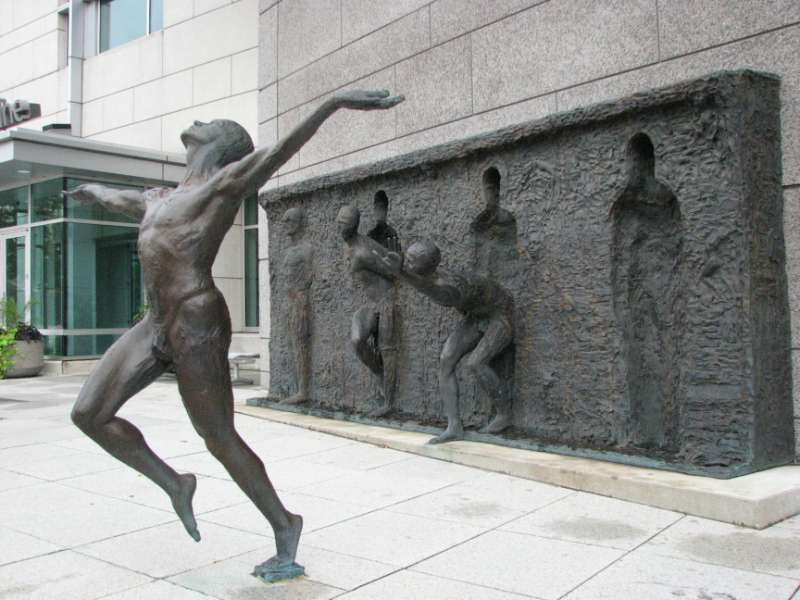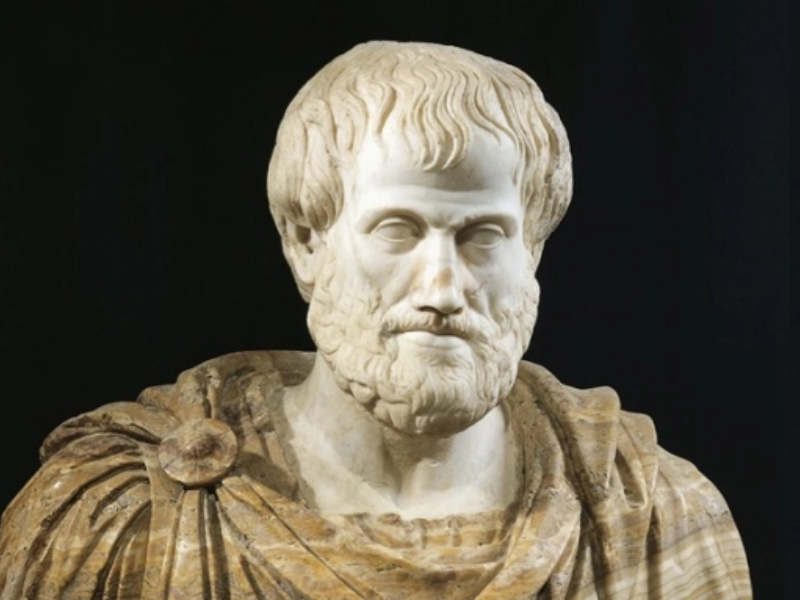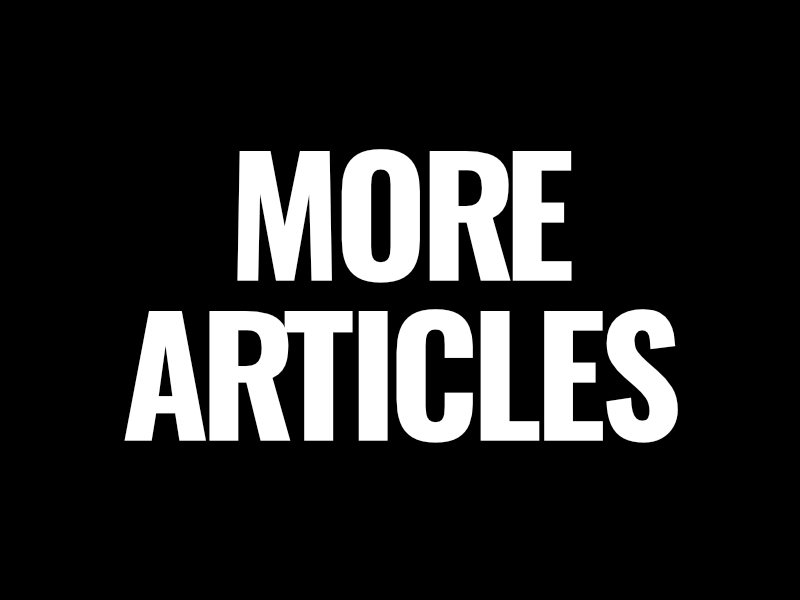Deepest Moral Impulses
– How do your impulses shape your being in the world? –

“Children, love one another.” — John the Evangelist
Many people, perhaps most, believe that morality comes from outside ourselves. They believe that only God, the scriptures, a prophet, or some other authority can tell us how we should live and navigate our lives. Only God can decide what is “right” and “wrong.”
Now, of course, there are wonderful moral principles or precepts in the world’s various scriptures and from the world’s various prophets, like the one from John the Evangelist — “Children, love one another.” But morality can’t be established by preaching alone.
To really understand your morality — your deepest intentions, motivations, values, and aims — we must take a look inside and know directly these non-verbal impulses or living forces that move us to action. Only then can we understand and deepen our relationship with moral concepts and precepts. Only then will the moral language we use carry any weight.
* * *
So, what is it that moves you through the world? Are you aware of your moral impulses? Which ones do you typically act on? When was the last time you looked not to your friends and neighbors, not to your scriptures and prophets, not to the laws and regulations of your state, but to your own being, to your own heart and mind, to understand your spiritual impulses, to understand your morality, to determine which foot to put in front of the next?
If Love does not flow naturally from your entire being, if you still find yourself most often acting from the opinions of the masses or from your baser desires, aversions, and self-concerns, then travel deeply inward to the farthest depths of your being, to the heart of your soul, and work outward until a boundless Love spills out and nourishes the world around and within you.
“You are what your deep, driving desire is. As your desire is, so is your will. As your will is, so is your deed. As your deed is, so is your destiny.” — The Brihadaranyaka Upanishad
Contemplation & Courage
If we travel the spiritual road back to ancient India, to a culture rich in spiritual life, we will find an impulse of contemplation or surrender to the spirit or mind. We discover a kind of sinking into one’s Self — a life lived in renunciation, introspection, and quietude, listening inward to the spirit while ignoring almost entirely the outer physical or material world.
And if we follow the spiritual road to the ancient inhabitants of Greece, we will find a related, though quite different, impulse: the impulse of courage or fortitude — which we may describe as an expression of one’s inner life, of one’s personality, of one’s innermost intentions, onto the outer world. This is captured in the Greek word Meraki — to put something of yourself, of your inner life, of the spirit, into your art or work; to do or create something with soul.
* * *
Where are these impulses — contemplation and courage — in our modern world? Do they appear in your own life? Are you devoted to the spirit, to the unbound heart and mind? Do you generally listen inward or do you more often find your senses entrenched in the outer world, consuming pop-culture, movies, shows, and political media? Do you find yourself painting your inner life, your innermost intentions, your deepest expressions onto the world? Or do you fall in line with the masses, cut and formed by the same cultural cookie-cutter as everyone else? Do you examine and express your raw vulnerabilities or do you more often sink into spiritual passivity — try to avoid the inner swell of emotions and feelings?
I know I can certainly do better. I envy my dearest Love’s courage — I marvel at her standing up on stage, spilling her heart and deepest feelings out into the world through her spoken poetry.
Love & Creativity
In ancient India around the fifth century B.C., the Buddha was compelled to eliminate suffering in the world. In his unrelenting devotion to this aim, he discovered that not only can each of us be free from dukkha — suffering, disatisfaction, discontent, agitation, resistance, dis-ease — but also that each of us, together with the world, inter-are. Everything is co-dependent on the rest. We are each made entirely of non-us elements, like a plant is made of soil, air, and rain.
To understand or view this from another angle, the Buddha discovered that behind each of our transitory experience exists the unformed space of awareness, which holds, composes, and knows all things. Everything we know or could ever possibly know arises out of and fades into the vast open space of mind. So, again, where are our dividing lines? What separates me from you?
The Buddha’s wonderful teaching of divine oneness, of love, equality, and compassion, had an impact on early Christianity, where on the shores of the Black Sea a school was founded that was led by people who had as their highest ideal this Buddhist teaching.
The teachers in this school, however, illuminated the Buddha’s teaching with a new light because they had also absorbed the Christ impulse — the impulse that, within each of us, is a drop of that Divine Ocean the Buddha found, a formless and unbound Ego made in God’s image, but who is a Creator. Those who absorbed both the Buddha’s and the Christ’s teachings believed that only through each of these Divine Drops could God’s will be done.
When one discovers this Christ Impulse within one’s self, it generally expresses itself as a duty to all of humanity to bring about the Cosmos’ most sincere aim: to Create freely love and compassion through your own divine you-ness, through your own unique individuality, creativity, and impulses.
(The Christ impulse was also discovered in the evolution of Buddhism, through the Mahayana tradition. The only real difference is the framing — the Mahayana tradition uses the Bodhisattva instead of the Christ.)
* * *
Have you discovered the divinity within you? If so, how does it shape your behaviors, your relationships, and your being in the world? Does it make you more compassionate? Does it allow you to embody a deep peace? Have you discovered your own unique qualities — your own you-ness? How does this understanding of you shape your morality? How can you use your own unique qualities to paint love and compassion onto the world?
Faith & Hope
Once you see the interconnected nature of all things, once you experience the wide open space of awareness, once you witness love directly, is it possible to believe the human soul can be built on anything but goodness?
When you think of a “bad” person, is that person — that person who was once a small child — really “bad”? Or, rather, were his behaviors warped over time through things like fear and uncertainty?
We can’t even begin to talk about human morality without faith in people’s goodness — faith in the foundation of love that sits at the center of each of us and connects us all. For without faith, there is no hope. A person who has faith in the love and goodness of each human generally finds in herself hope that every soul, no matter how far it has fallen, may find its way back to its goodness, to its divine wholeness.
I can’t tell you how grateful I am, personally, for those people in my life who have kept their faith in me — in my goodness. Their patience, humility, and faith gave me the space I needed to explore the world and my experience, which, for me, meant wandering off the path occasionally, before I could come back home to — and find confidence in — my goodness, in my Self.
* * *
What’s your attitude toward other people? Is it your impulse to believe in their original goodness? Do you have faith in the goodness of people, even if its seeds may need to be watered, cared, and attended to? With this conviction in people’s goodness, do you then find yourself acting out of more patience and compassion? Do you gain a kind of confident and stability that is grounded in hope?
Interest & Understanding
Consider for a moment what allows you to experience the world of people, things, feelings, and emotions. What allows you to connect to, relate with, and understand them, instead of passing them by unknowingly?
It is what we may call our interest in things. You can wonder. Let me say it again. You can wonder. How often do you take this marvelous impulse for granted?
Our morality, our lives, our relationships, our art, our careers — are never guided better than when we take a genuine interest in them. Say we have a kid in front of us. What must we have before we can truly love and devote ourselves to this kid? What is required of us to be truly compassionate to her? We must take an interest in her.
Our interest is the tip of the spear. It drives everything. Only when we are sincerely interested in someone or something will our inner powers — our cognitive, empathetic, and emotional faculties — come into full force. When we sincerely extend our interests, when we really try to understand people and things, we move with an ease and a pleasure, a kind of flow. We are like kids, sponges that absorb everything.
Let’s consider, again, a person. If we take an interest in them, if we try to understand him, our compassion will be called forth, I think you’ll agree, in the most appropriate manner. But, on the other hand, if we are not interested in this person but only ourselves, what happens to our inner world — to our compassion and relation with the world around us? How does this make us feel? How does it make us act?
Moral progress is not made by preaching universal love. It is made by extending our interests so that we may increasingly understand each other, ourselves, and the world in which we are all connected. It is this understanding, this genuine interest, that calls forth from the soul honest, loving, beneficial, and skillful moral conduct. After all, without interest and understanding, how could we ever know that our intentions, words, and deeds are helpful, useful, or beneficial — that is, “good”? Without wonder, how could we know anything at all?
Now, there’s a tricky line to walk here. It’s important to understand that there’s no fixed goodness, no single “right” way or “correct” compassionate response. I know it’s often easier to have a fixed set of rules, but that’s not the way the world works. Life is fluid and changing. The spirit is in motion.
And it often walks on razor’s edge, prone to fall in either direction. First, we can become lost to the world. The world seizes and takes over us, as is the case with reckless passion or when we overextend ourselves. Second, the world becomes lost to us. We shut out the world and harden in ourselves, in our ego, as is the case with cowardice, laziness, or apathy.
It’s important, then, to balance these two extremes: reckless passion or insincere interest on the one side and egoism on the other. Again, when we fail to distinguish between genuine and false interests, we lose ourselves to the world. Immersing ourselves immediately and fully into the arms of everything is not genuine interest but a wanton loss of self. It is shallow.
On the other side, again, when we shut the world out, when we harden into our ego, whether through fear, laziness, or apathy, the world becomes lost. Apathetic people are indifferent to the world. They live only in themselves and stubbornly insist on their own viewpoint, ignoring and refusing to understand others. If we are to be in the world, as we all are, it’s important that we remain open to and interested in all that is around us. Apathy removes us from the world, and therefore makes our actions clumsy and self-centered. Fear and laziness too drive us deeper into our holes. They turn us into stagnant water, frozen, diseased, and unable to live and grow.
Through blind passion we surrender ourselves to the world, and through egoism we are cut off from the world. But through a healthy interest we can keep the world and ourselves in each other’s embrace.
* * *
Does a genuine interest in the inner and outer worlds guide your actions in a way that feels healthy to you? Where is your wonder? What captures your interest? Are you interested in the miracle of your own being? Do you see this awe-inspiring miracle reflected in others and in the world around you? Where is fear, laziness, and apathy showing up in your life?
Conclusion
Approach your fellow human beings with interest and understanding so that you may offer them what they need. Try to understand others in all their differences — in their race, sex, gender, color, nationality, beliefs, worldview, and in their own unique individuality.
To understand others, however, consider whether it might be best to start at home — to start by understanding yourself. It’s not egoism to understand and develop yourself. When you understand and develop yourself, will you not have more to give? Will you not be better situated to uplift the world? Will you not have the capacity to better mirror for others, so that they can look into and understand themselves?
Try practicing contemplation and courage. Open a little bit every day to the silence and see what it brings forth. Try to produce, create, write, or build something from the heart, something raw and vulnerable. Let a genuine interest in yourself guide you to the unbounded love and compassion that sits at the heart of every soul.
Live from your own understanding of love.
May you truly be at peace,
John Driggs | Author, Meditation Teacher, Philosopher, Podcast Host of Love & Understanding, & Founder of Project Human | Explore & Expand the Space of Possibility that You are!
More Articles
“Poetic Imagination”
I hope at least once in your life you’ve seen the Milky Way. The brushstroke of glimmering white light that cuts through the heavens is breathtaking. And to imagine, before all the light and carbon…
“Carving Knowledge from Our Imaginations”
Every civilization throughout history has created a dogmatic school whose main task is to pass on the doctrine of its founder intact to each generation. In the rare…
“Failures of Ultimate Explanation”
The earliest Greek philosophers didn’t really ask ‘what is?’ questions. Rather than quibble over the meaning of words, they tried to solve specific problems by creating bold explanatory theories…
“Plato’s Moral Tyranny”
Only you, the individual, can decide whether a behavior, norm, or institution is right or wrong. It is your burden and yours alone. You can’t shift it to god, nature, history, or even to society, because whatever…






